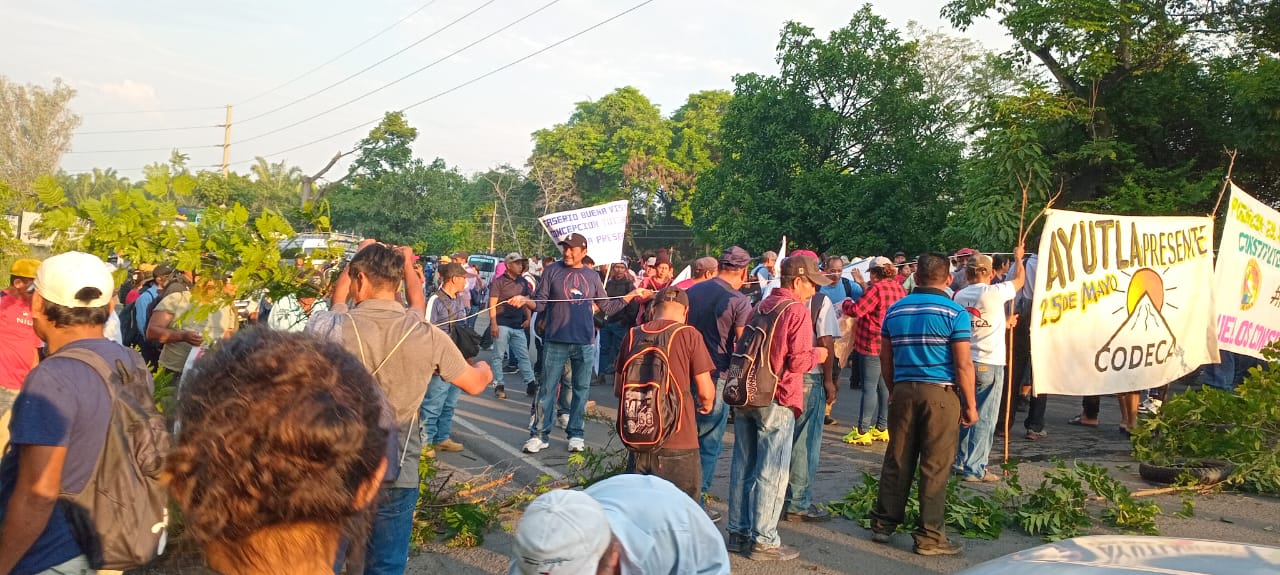Central America
Guatemala sees road blockades amid protests against lawmaker pay hikes

At least 16 points are blocked in Guatemala on Monday by the Committee for the Development of Rural Communities (Codeca), which is protesting the salary increase for members of Congress. The lawmakers are set to receive their third paycheck since the salary adjustment was approved in November 2024.
Although the Congressional Board of Directors announced the suspension of the salary increase at the end of March through an official document, it was later stated that the measure must be ratified by the full legislative body, requiring the approval of at least 81 of the 160 members. No reversal of this decision has been made so far. The salary of lawmakers has risen from GTQ 29,150 ($3,784) to GTQ 66,300 ($8,607). Their third elevated salary will be issued on Monday, according to local media.
The 23 deputies from the Semilla party, with which Bernardo Arévalo won the presidency, did not vote in favor of the proposal when it was presented. However, reports suggest that this may have been part of a negotiation with the opposition to approve a reform to the Law Against Organized Crime, aimed at ending legal persecution against them, as reported by the media outlet República. “The government must remember that the people defended it and it must serve the people,” stated Codeca’s official post on X (formerly Twitter).
Other grievances raised by the protesters include the rising cost of basic goods, demands to halt water privatization, an end to forced evictions, and the resignation of Attorney General Consuelo Porras.
The Constitutional Court (CC) granted a provisional injunction on Sunday, ordering the government to allow free movement. While the court permitted the protest to proceed, it stated that the rights of the general public to mobility and access to commercial transport services should not be interrupted.
Central America
Laura Fernández Says She Will ‘Never’ Allow Authoritarianism in Costa Rica

Costa Rica’s president-elect, right-wing leader Laura Fernández, said she will “never” allow authoritarianism under her government, in her first speech after winning Sunday’s presidential election.
Fernández, the political heir of outgoing President Rodrigo Chaves, has been accused by her opponents of seeking to steer the country toward authoritarian rule through her hardline proposals against drug trafficking and plans to reform state institutions.
“I, as the new president of the Republic, will never allow authoritarianism or arbitrariness—things that no one wants in Costa Rica,” Fernández said to cheers from her supporters gathered at a hotel in the capital.
The 39-year-old political scientist criticized her rivals for centering their campaign on what she described as a narrative of “authoritarianism and dictatorship.”
“They tried to scare voters, but the electorate did not fall into the trap,” she said.
Without offering details, Fernández acknowledged that her administration will seek to change the country’s “political rules of the game,” in what she described as a necessary step for Costa Rica, one of Latin America’s most stable democracies.
Central America
Costa Rica Goes to the Polls as Voters Choose Continuity or Change

Costa Ricans head to the polls today to elect the president of the republic and 57 members of the Legislative Assembly for the 2026–2030 term. Voters must choose between continuing the political project of outgoing President Rodrigo Chaves by supporting the ruling right-wing candidate Laura Fernández, or opting for a change in direction proposed by the opposition.
Fernández, representing the Pueblo Soberano Party (PPS), leads opinion polls with close to 40% of voting intention, bolstered by the outgoing president’s approval rating, which exceeds 50%. Chaves is barred from seeking immediate re-election under Costa Rican law.
Trailing far behind is Álvaro Ramos of the National Liberation Party (PLN), with less than 10% support. He is followed by Claudia Dobles of the Citizen Agenda Coalition (CAC), Fabricio Alvarado of New Republic (NR), and Ariel Robles of the Broad Front (FA), each polling between 3% and 5%. Undecided voters, who account for more than 30% of the electorate, could determine the outcome of the presidential race or force a runoff.
In a statement, Costa Rica’s Supreme Electoral Tribunal (TSE) reaffirmed its commitment to transparent and secure elections. “As has been the case for more than 76 years of democratic life in our country, the Supreme Electoral Tribunal guarantees all Costa Ricans that the national elections to be held this Sunday, February 1, will meet the highest standards of security and absolute transparency, allowing us to continue enjoying electoral processes in peace and freedom,” the institution said.
Authorities reported that 53,251 party observers will take part in the electoral process. Of these, 12,472 belong to the Social Christian Unity Party, 11,524 to Pueblo Soberano, 10,451 to the PLN, and 4,141 to the Citizen Agenda Coalition, among others. In addition, six political parties have sworn in 7,520 members of polling station boardsdeployed nationwide.
Central America
U.S. and Guatemala Sign Trade Deal Granting Zero Tariffs to Most Exports

The United States signed a reciprocal trade agreement with Guatemala on Friday, under which 70.4% of Guatemalan exports will enter the U.S. market tariff-free.
Guatemalan President Bernardo Arévalo highlighted the importance of the agreement, stating that it creates a framework of cooperation, certainty, and new opportunities for producers, workers, and entrepreneurs in the country. His remarks were shared in a video published on his official social media channels.
In 2025, 30.3% of Guatemala’s total exports were destined for the United States, amounting to approximately $4.3 billion. As a result, the agreement is expected to directly benefit key sectors of the Guatemalan economy, including agribusiness, manufacturing, and the textile industry.
“Today we have taken another step toward consolidating a country that, when it moves forward united, generates confidence, attracts investment, and creates real development opportunities for all its people,” Arévalo added.
The agreement with Guatemala follows a similar trade deal signed by the United States with El Salvador on Thursday, which includes the elimination of a 10% tariff on Salvadoran imports.
-

 International2 days ago
International2 days agoEpstein Denies Being ‘the Devil’ in Newly Released Video Interview
-

 International2 days ago
International2 days agoSpain Seeks to Ban Social Media Access for Children Under 16
-

 International2 days ago
International2 days agoMexico to Send Humanitarian Aid to Cuba Amid U.S. Threats Over Oil Shipments
-

 International2 days ago
International2 days agoPetro Resumes Extraditions, Sends Top Criminal to U.S. Before White House Talks
-

 International2 days ago
International2 days agoHypothermia Linked to Most Deaths During New York’s Recent Cold Spell
-

 International2 days ago
International2 days agoMexico Arrests Suspect in Shooting of Sinaloa Lawmakers
-

 International17 hours ago
International17 hours agoDelcy Rodríguez Takes Control of Chavismo as Venezuela Enters a U.S.-Supervised Transition
-

 Central America3 days ago
Central America3 days agoCosta Rica Goes to the Polls as Voters Choose Continuity or Change
-

 International17 hours ago
International17 hours agoHRW Warns Trump’s Influence Has Weakened Human Rights in Latin America
-

 Central America2 days ago
Central America2 days agoLaura Fernández Says She Will ‘Never’ Allow Authoritarianism in Costa Rica
-

 International2 days ago
International2 days agoNFL Investigating Emails Linking Giants Executive to Jeffrey Epstein


























